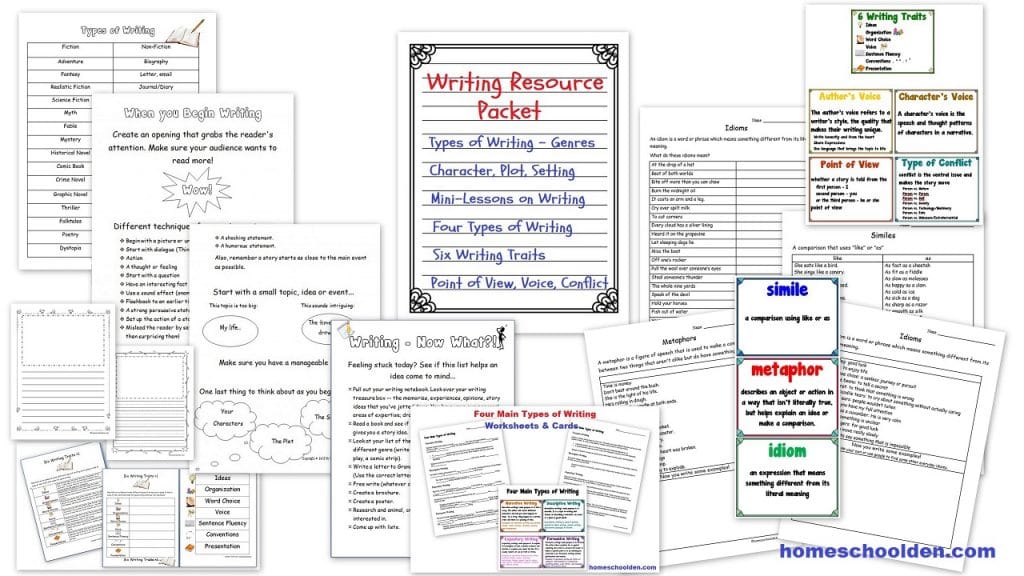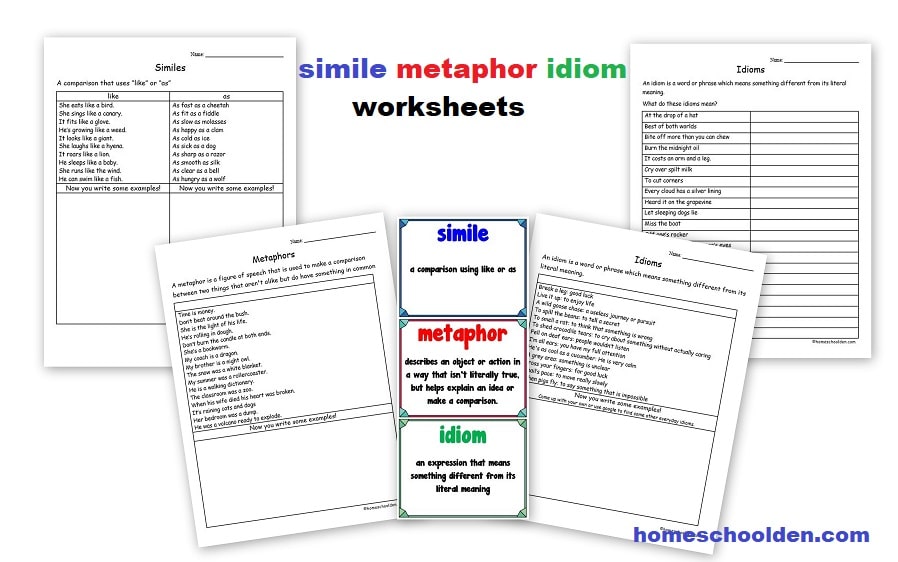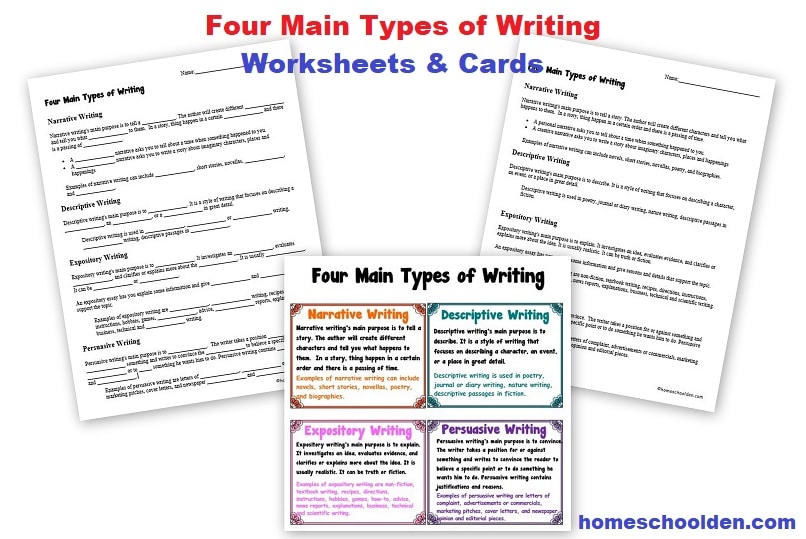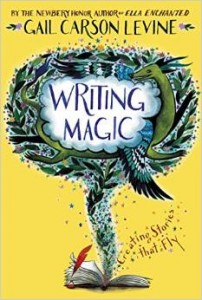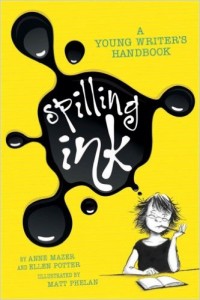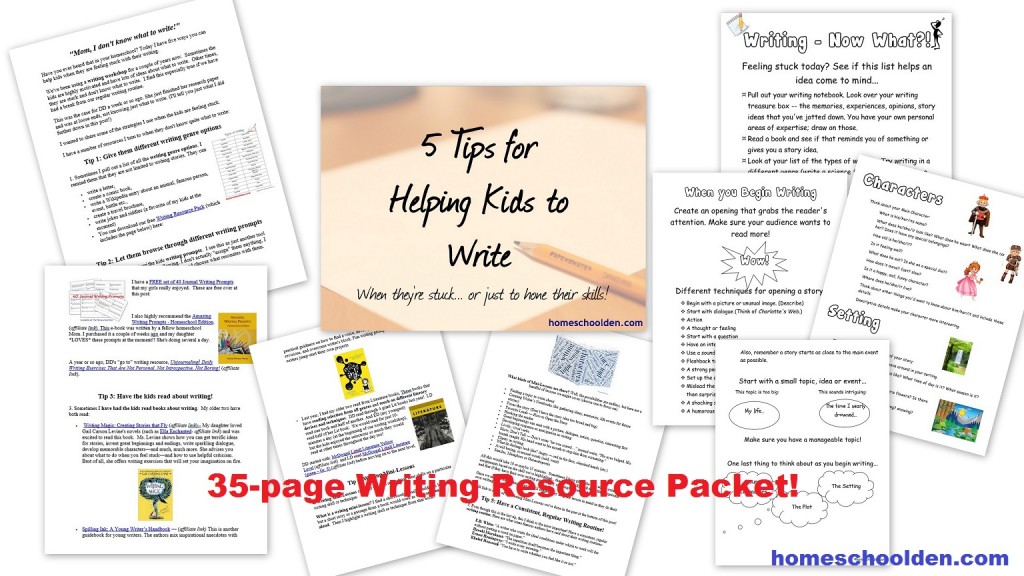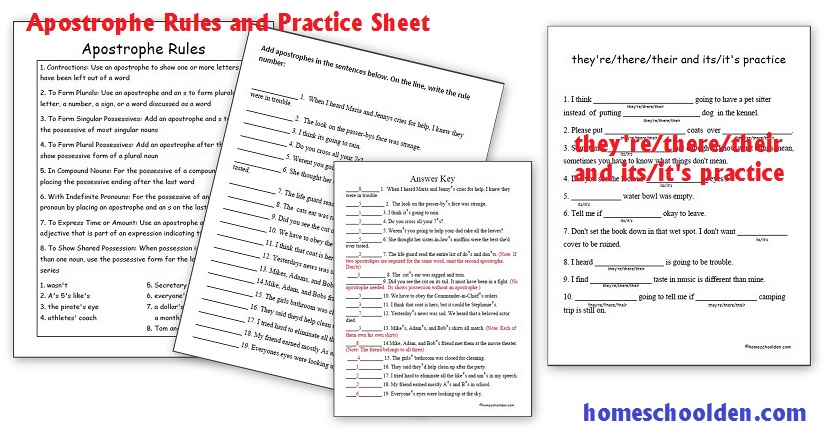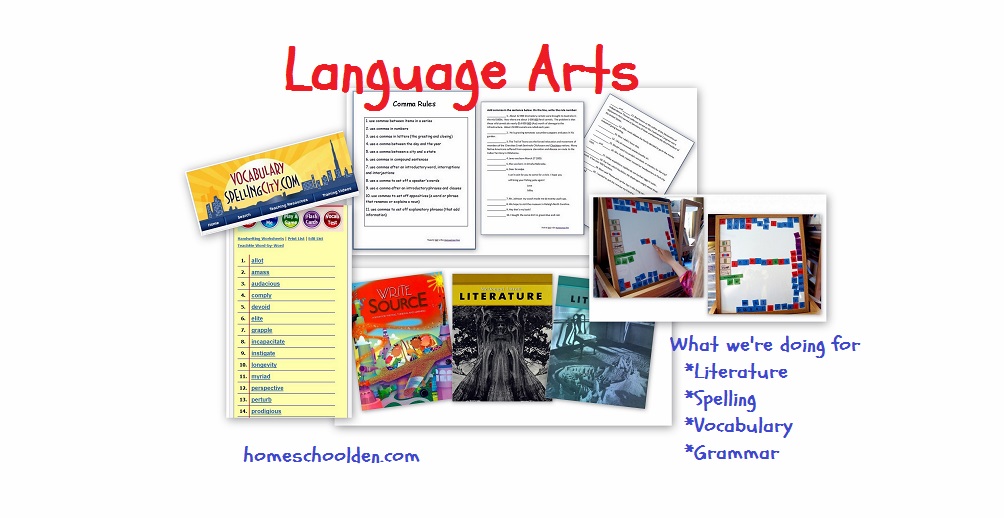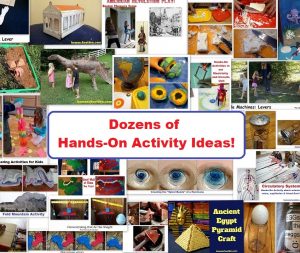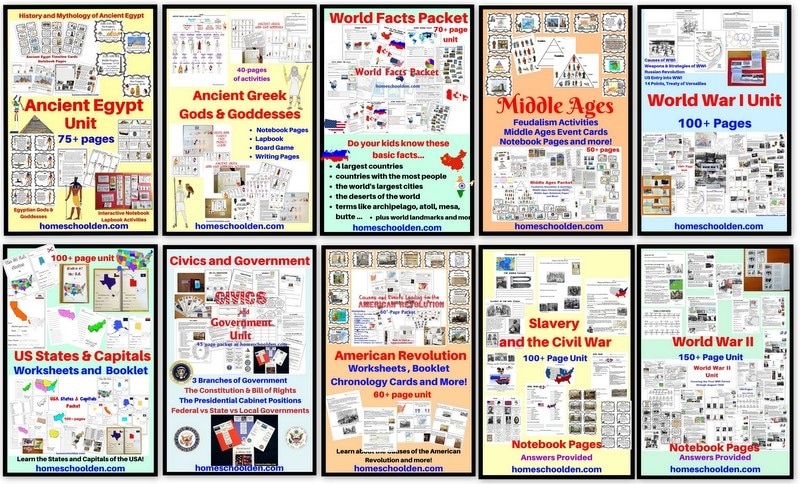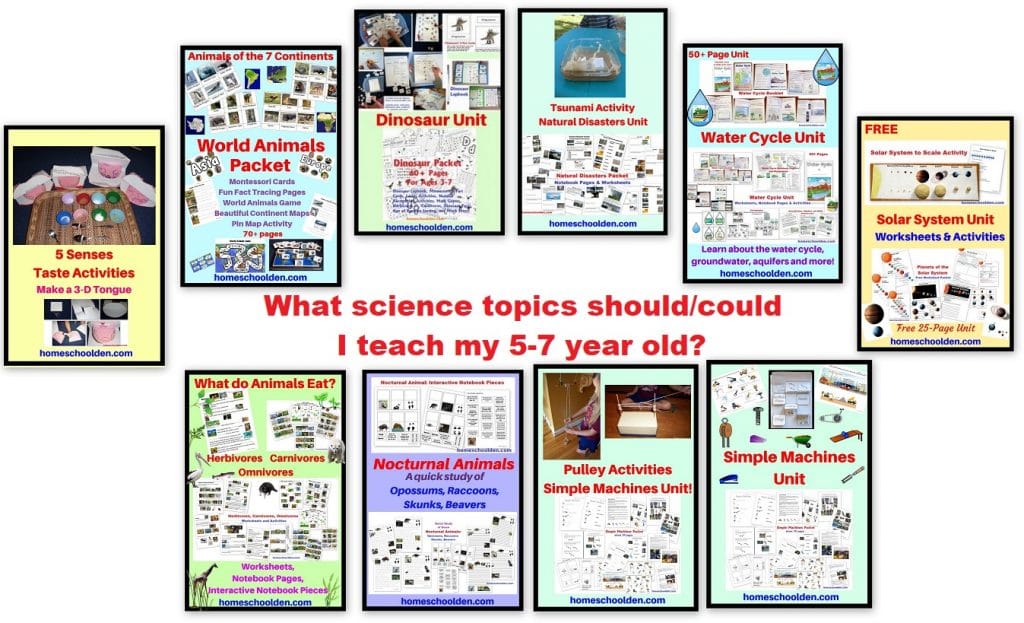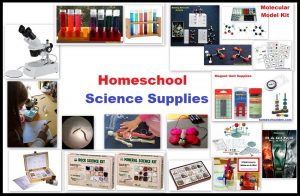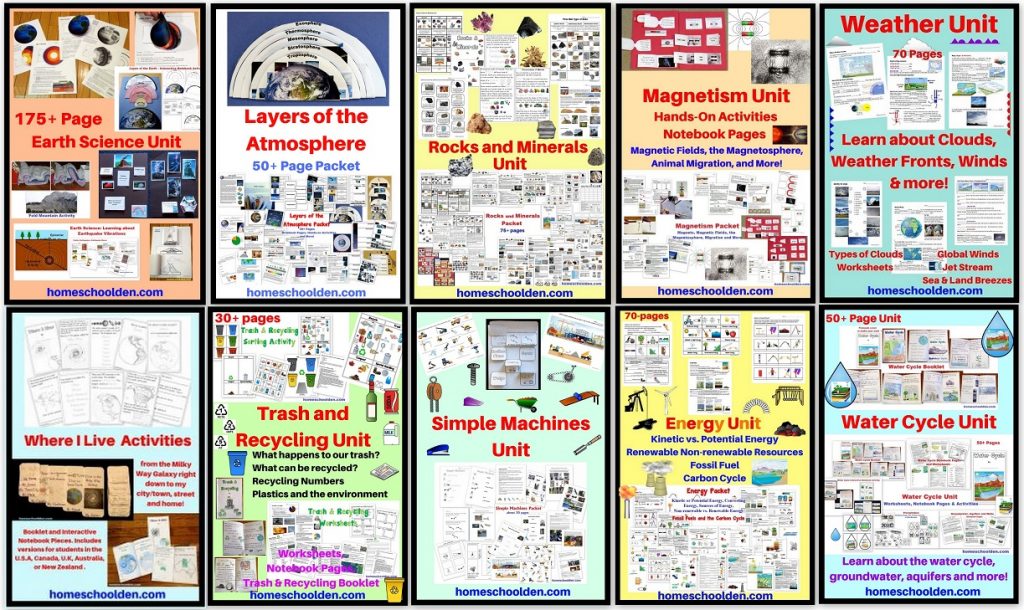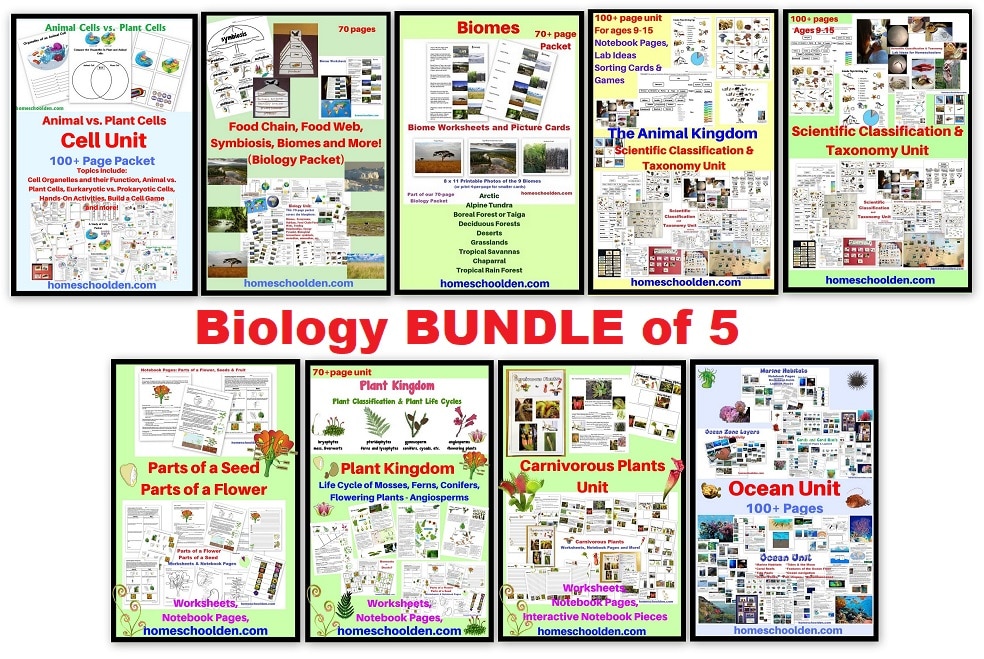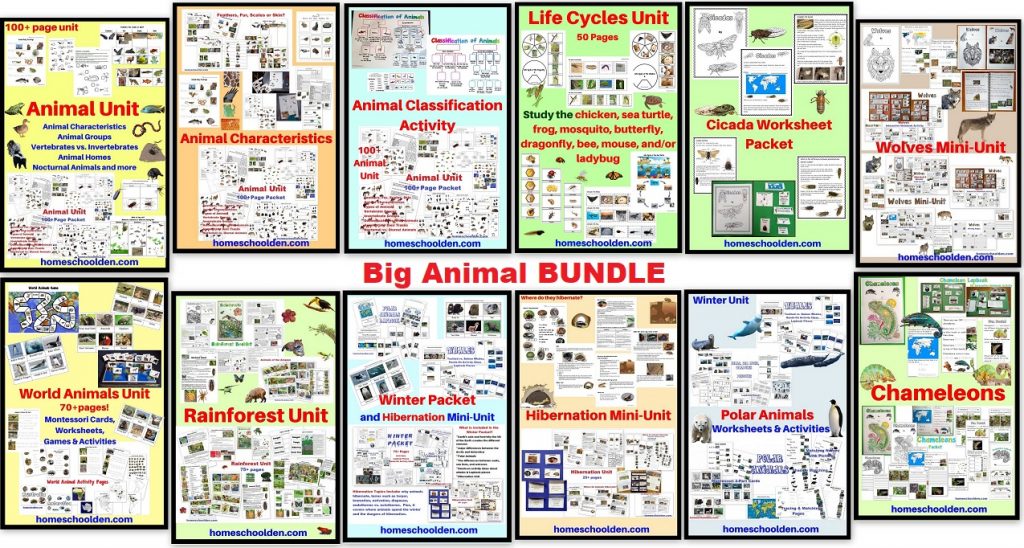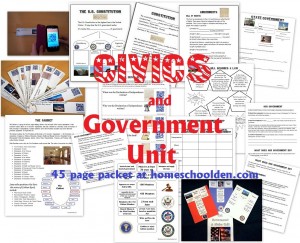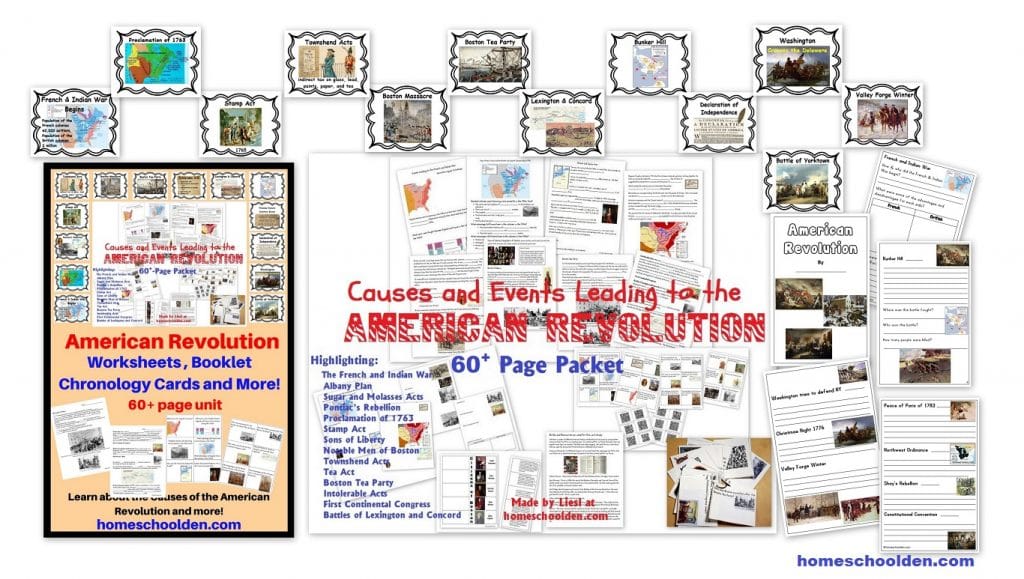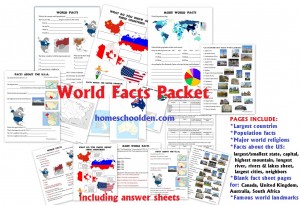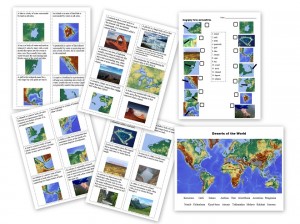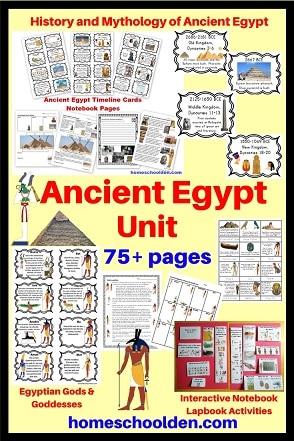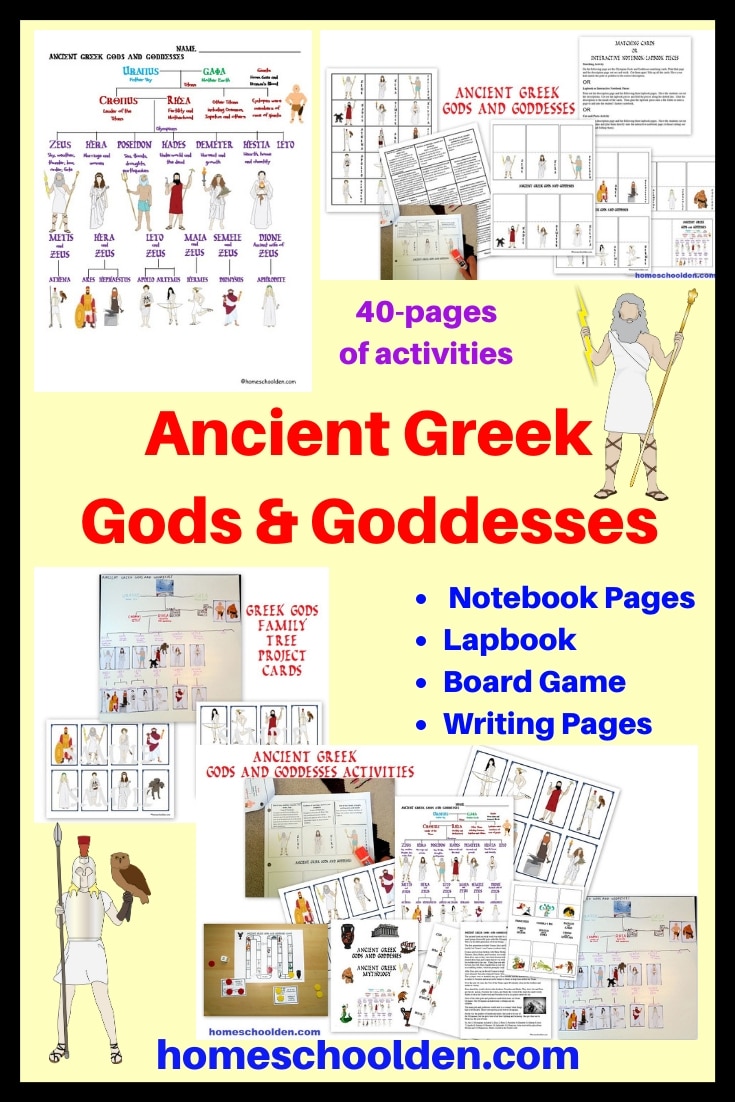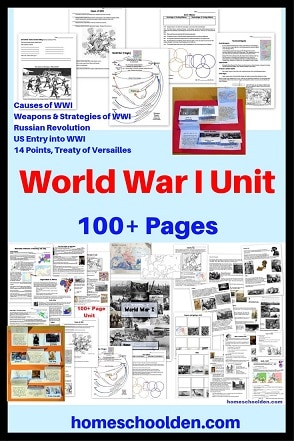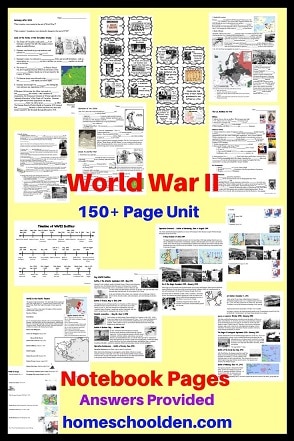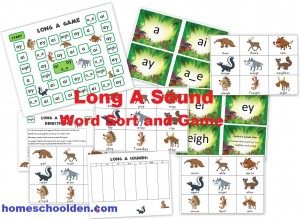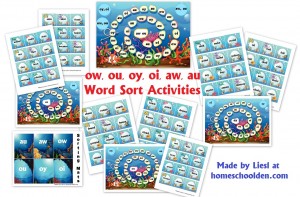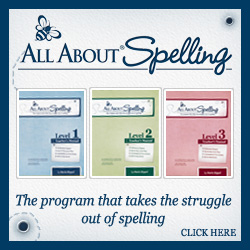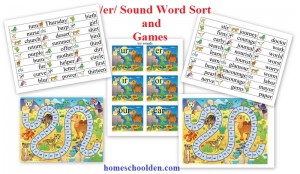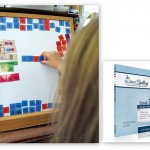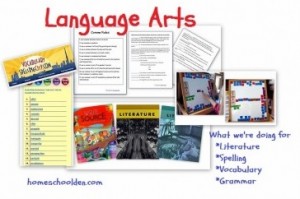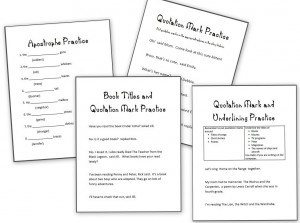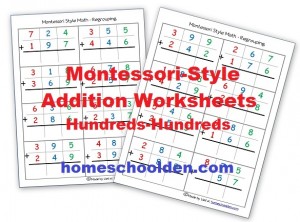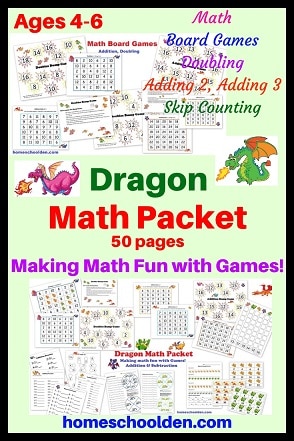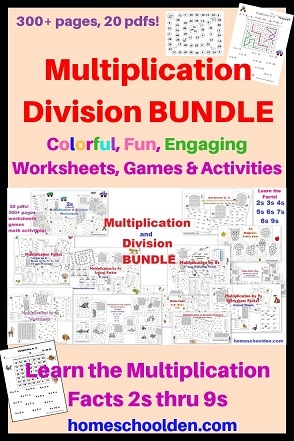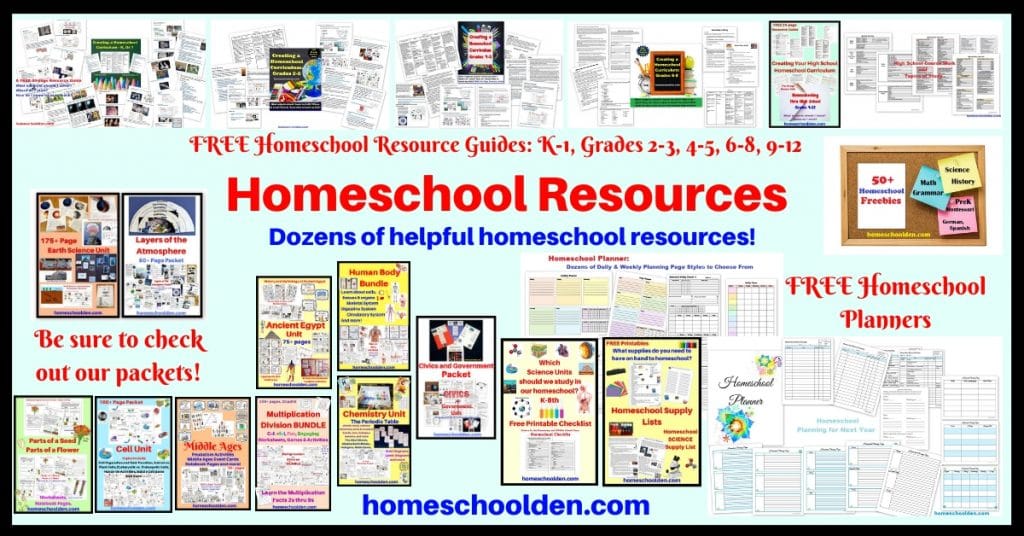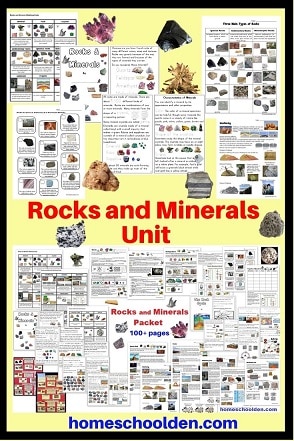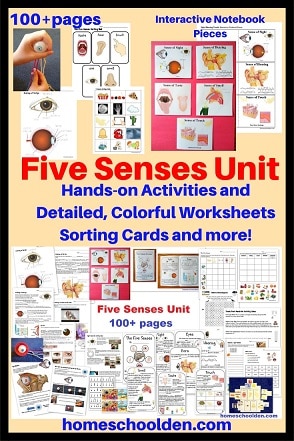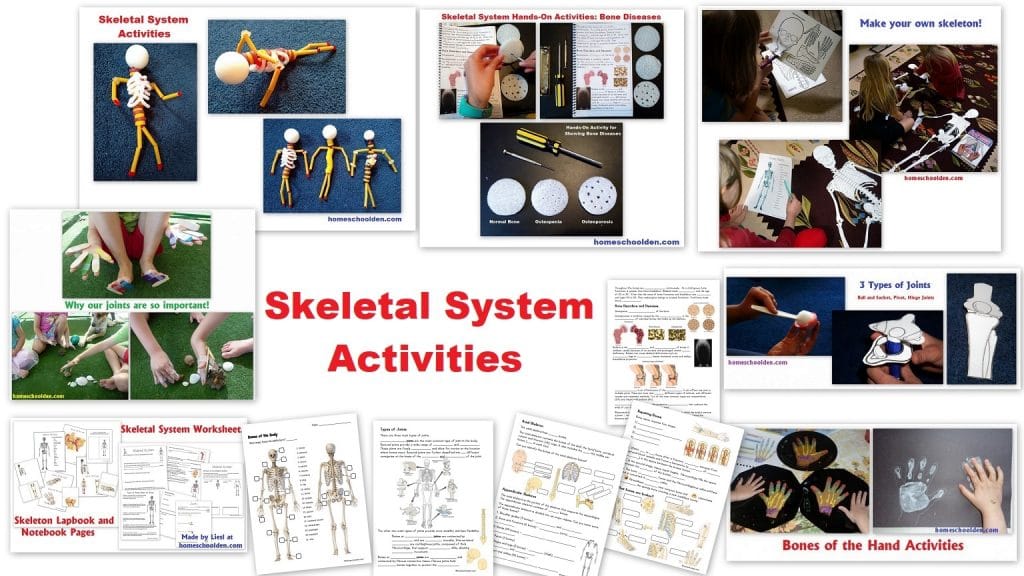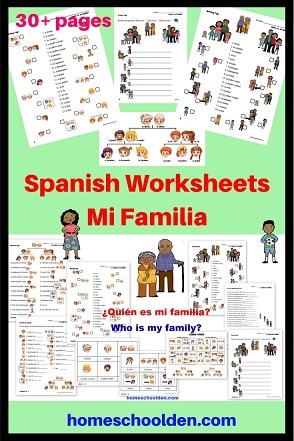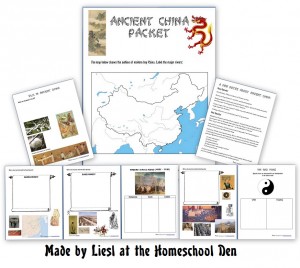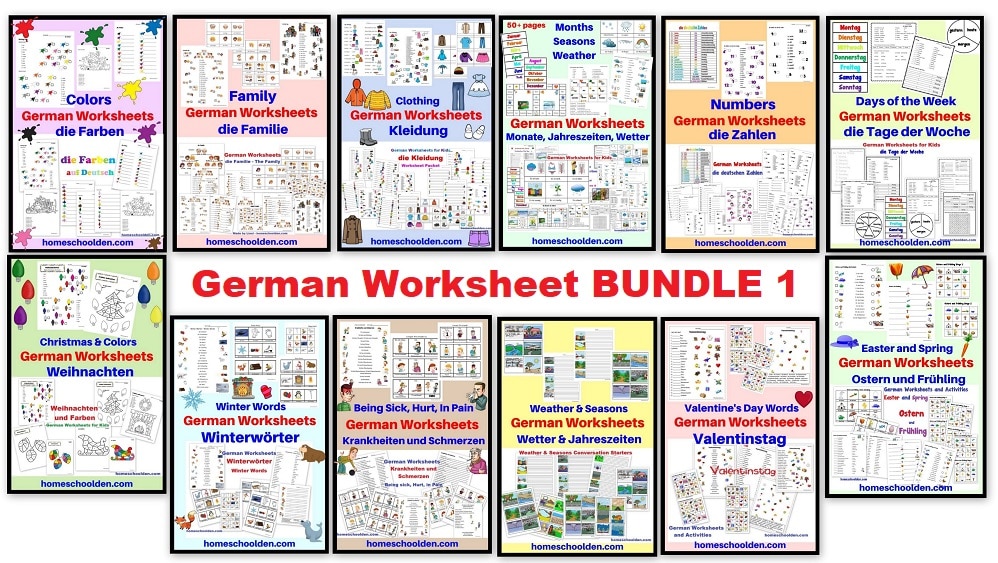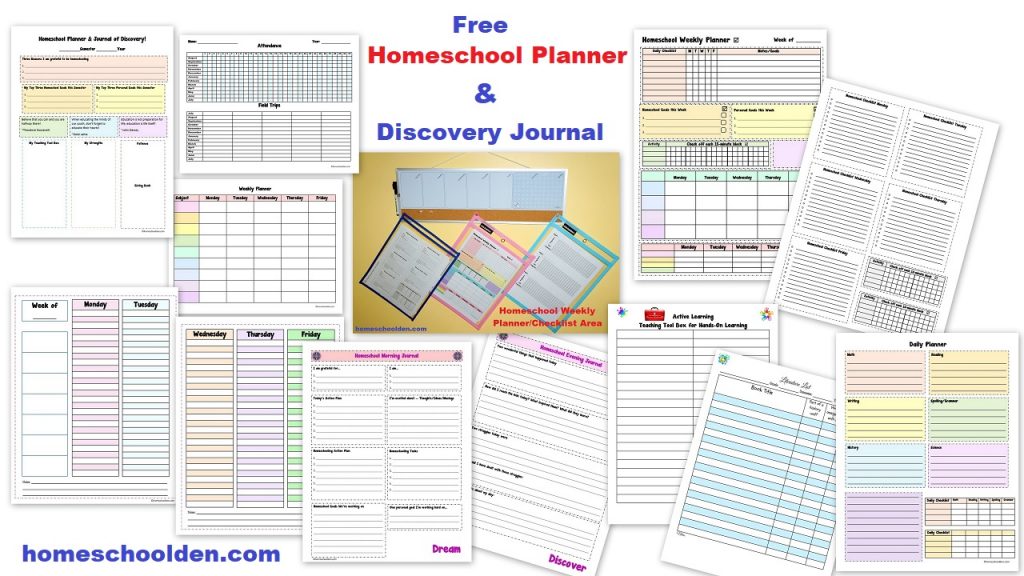5 Tips for Helping Kids to Write – Writing Resource Pack (Currently FREE!)
“Mom, I don’t know what to write!”
Have you ever heard that in your homeschool? Today I have five ways you can help kids when they are feeling stuck with their writing. At the end of this post, you can download our 35+ page writing resource packet. It is currently FREE to download!
Writing Tips: Writing Resource Packet
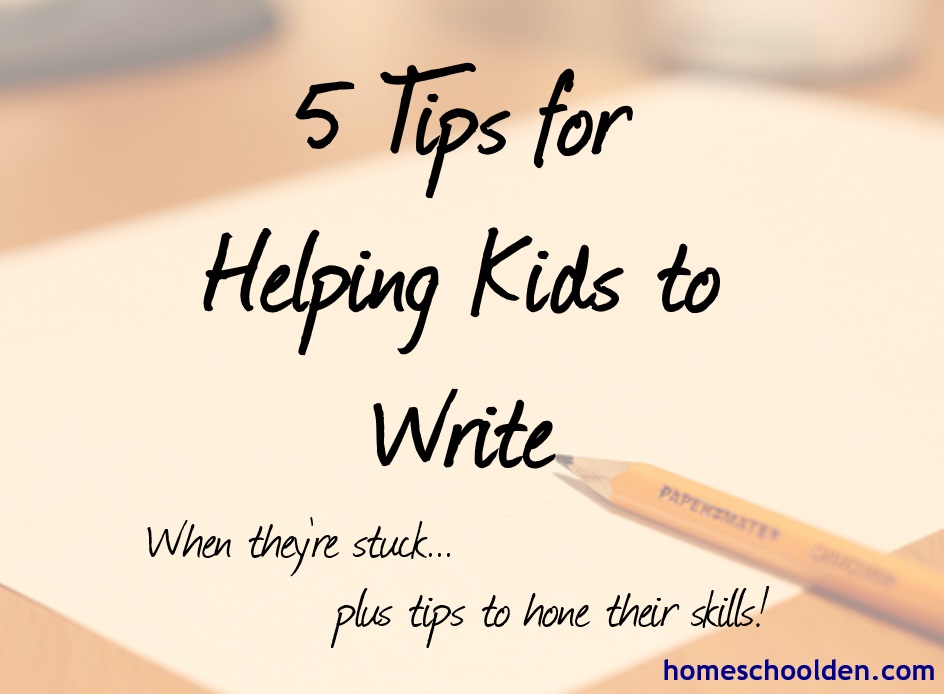 We’ve been using a writing workshop for a couple of years now. Sometimes the kids are highly motivated and have lots of ideas about what to write. Other times, they are stuck and don’t know what to write. I find this especially true if we have had a break from our regular writing routine.
We’ve been using a writing workshop for a couple of years now. Sometimes the kids are highly motivated and have lots of ideas about what to write. Other times, they are stuck and don’t know what to write. I find this especially true if we have had a break from our regular writing routine.
This was the case for DD a few weeks ago. She just finished her research paper and was at loose ends, not knowing just what to write. (I’ll tell you just what I did further down in this post!)
I wanted to share some of the strategies I use when the kids are feeling stuck.
I have a number of resources I turn to when they don’t know quite what to write:
Tip 1: Give them different writing genre options
1. Sometimes I pull out a list of all the writing genre options. I remind them that they are not limited to writing stories. They can
- write a letter,
- create a comic book,
- write a Wikipedia entry about an animal, famous person, event, battle etc.,
- create a travel brochure,
- write jokes and riddles (a favorite of my kids at the moment)
- You can download our Writing Resource Packet (which includes the page below) here:
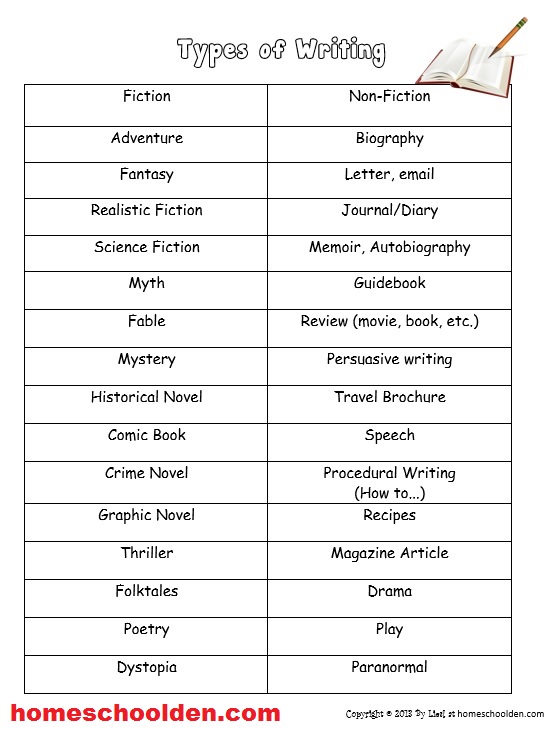 Note: The Writing Resource Packet is being updated. 🙂
Note: The Writing Resource Packet is being updated. 🙂
Coming Soon: Writing Resource Packet (Updated Version)
Tip 2: Let them browse through different writing prompts
2. At times, I have give the kids writing prompts. I see this as just another tool for getting their creative juices flowing. I don’t actually “assign” them anything, I just let them browse through the prompts and choose what resonates with them.
I have a FREE set of 40 Journal Writing Prompts that my girls really enjoyed. These are free over at this post:
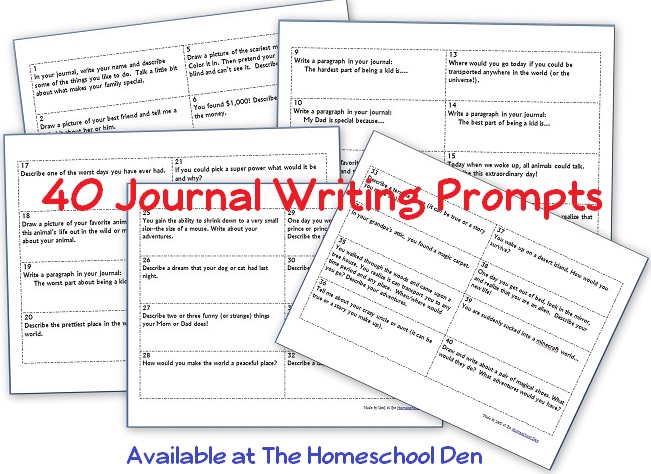 I also highly recommend the Amazing Writing Prompts – Homeschool Edition. (affiliate link) This e-book was written by a fellow homeschool Mom. I purchased it a couple of months ago and my daughter *LOVES* these prompts at the moment!! She’s doing several a day (well, she was up until our holiday break that is!).
I also highly recommend the Amazing Writing Prompts – Homeschool Edition. (affiliate link) This e-book was written by a fellow homeschool Mom. I purchased it a couple of months ago and my daughter *LOVES* these prompts at the moment!! She’s doing several a day (well, she was up until our holiday break that is!).
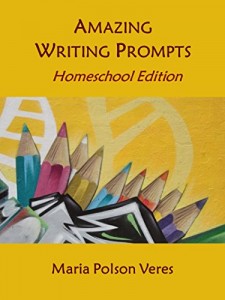 For example, DD chose to do a Create a Country writing exercise. We had to come up with our own country name, flag, strengths, weaknesses (and more). Then on the second day, we had to have negotiations because one country stole from another! Lots of writing got done with this creative writing assignment! 🙂
For example, DD chose to do a Create a Country writing exercise. We had to come up with our own country name, flag, strengths, weaknesses (and more). Then on the second day, we had to have negotiations because one country stole from another! Lots of writing got done with this creative writing assignment! 🙂
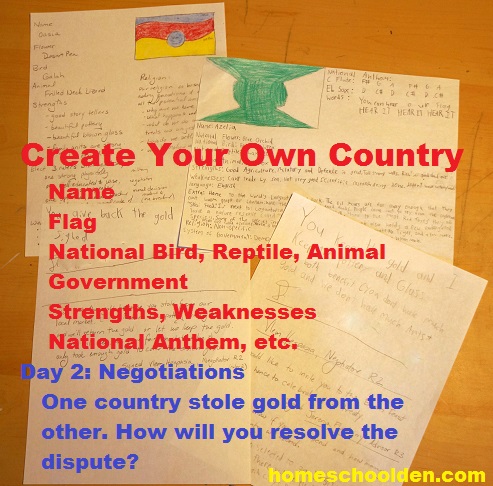 A year or so ago, DD’s “go to” writing resource, Unjournaling: Daily Writing Exercises That Are Not Personal, Not Introspective, Not Boring! (affiliate link).
A year or so ago, DD’s “go to” writing resource, Unjournaling: Daily Writing Exercises That Are Not Personal, Not Introspective, Not Boring! (affiliate link).
Tip 3: Have the kids read about writing!
3. Sometimes I have had the kids read books about writing. My older two have both read:
- Writing Magic: Creating Stories that Fly (affiliate link)– My daughter loved Gail Carson Levine’s novels (such as Ella Enchanted– affiliate link) and was excited to read this book. Ms. Levine shows how you can get terrific ideas for stories, invent great beginnings and endings, write sparkling dialogue, develop memorable characters—and much, much more. She advises you about what to do when you feel stuck—and how to use helpful criticism. Best of all, she offers writing exercises that will set your imagination on fire.
- Spilling Ink: A Young Writer’s Handbook — (affiliate link) This is another guidebook for young writers. The authors mix inspirational anecdotes with practical guidance on how to find a voice, develop characters and plot, make revisions, and overcome writer’s block. Fun writing prompts will help young writers jump-start their own projects. I had both of my older two read this after they read Writing Magic.
- Last year, I had my older two read from Literature books, These books that have reading selection from all genres and touch on different literary devices and techniques. DD read through 4 giant Lit books last year! LD read one book and half of another. And ED (my youngest) read half of her Lit book. We would read for just 10-minutes a day (at the beginning of our writing workshop), but the kids enjoyed the selections so much they would read at other times throughout the day too!
DD started with: McDougal Littell Literature Yellow Level (affiliate link) and LD read McDougal Littell Literature (green – Gr. 8) (affiliate link) before moving on to the next level.
Tip 4: Writing Mini-Lessons
4. Writing Mini-Lessons can help the kids really hone their skills on a particular writing skill or technique.
What is a writing mini-lesson? I find a short book (usually children’s literature, but a short story or a passage from a book would work as well) and read it aloud. Then I highlight a writing skill or technique from that book. What kinds of Mini-Lessons are there? Well, the possibilities are endless, but here are a handful of lessons we might cover (choose one to focus on).
What kinds of Mini-Lessons are there? Well, the possibilities are endless, but here are a handful of lessons we might cover (choose one to focus on).
- Finding a topic to write about
- Creating Writer’s Notebooks (for gathering ideas, memories, life events for future stories)
- Focus the story (Don’t have the story idea too broad and big)
- Favorite Leads — How to Open the Story
- Hooking the reader
- Great beginnings can start with a picture, dialogue, action, question, interesting fact
- Developing suspense or anticipation in writing
- Lively, vivid verbs
- Show, Don’t Tell — Don’t write “he was scared…” instead write, “His eyes bulged. His breath caught. His hand went to his mouth to stop him from screaming.”
- Clarity in writing
- What do feelings look like? Angry — red in the face, clenched hands (etc.)
- Avoid boring, overused words (said, went)
- Similes, Metaphors or Onomatopoeia
All this would take 10 or maybe 15 minutes. Sometimes I have given the kids actual writing assignments based on the skill we’ve highlighted… though normally I tell them this is optional and that if they have their own writing project, they can simply work on that!!
Once we all grab our writing journals, I’ll suggest they keep the lesson in mind as they do their own writing.
I will link to many of the Writing Mini-Lessons we’ve done in the past at the bottom of this post!
Tip 5: Have a Consistent, Regular Writing Routine!
5. Even though this is the last tip, this I think is the most important! Have a consistent, regular writing routine. Here are what some famous authors have said about their writing routines:
E.B. White: “A writer who waits for ideal conditions under which to work will die without putting a word on paper.”
Haruki Murakami: “The repetition itself becomes the important thing.”
Ernest Hemingway: “I write every morning.”
Khaled Housseni: “You have to write whether you feel like it or not.”
Writers have come up with routines that works for them. Mark Twain, George Orwell, Edith Wharton, Woody Allen and Marcel Proust all wrote while lying down in bed or lounging on a sofa. On the other hand, Hemingway, Charles Dickens, Virginia Woolf, Lewis Carroll, and Philip Roth all wrote while standing up!
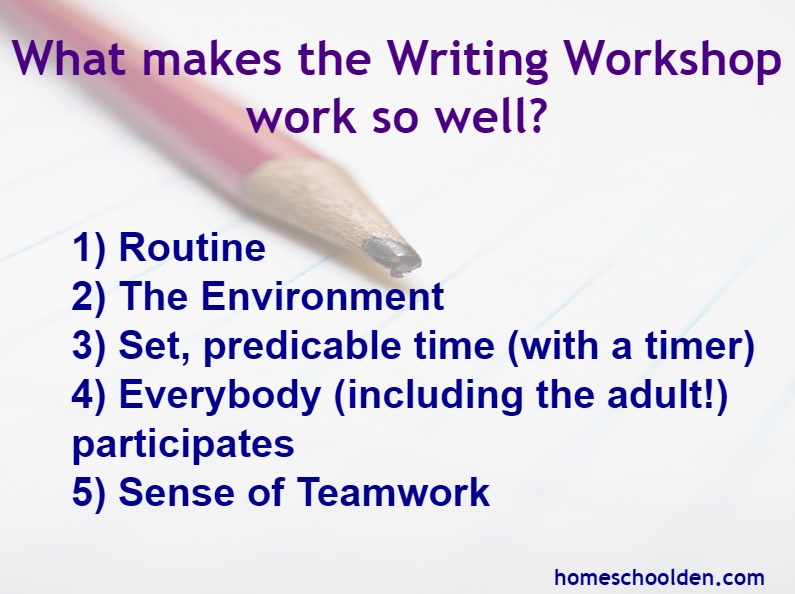
We have come up with a writing routine that works for our family. You could try this and tweak it to work for your family.
- Have the kids gather their materials for Writing Workshop (or whatever you choose to call it)… journal, date stamp, pencil/s, books, etc.
- Do a 10-minute mini-lesson or their reading (about writing).
- Set the timer for 10 minutes and write in silence. We started with 10 minutes and built up slowly from there.) We now write for 25 minutes, but we built up our writing time slowly.
- Make the rules about writing time very, very clear.
- No talking
- No asking about spelling
- No moving about
- No asking how much time is on the timer!
- Or whatever works for your family!!
- Write with the kids! It’s important that we adults model writing. They can see the struggles and triumphs we have as we go through the same writing process! Since I also use this time to write, I make it clear that this is my time to be creative as well. 🙂
- Allow time at the end for everyone to share. This has been quite a powerful part of our writing workshop. Over the past couple of years, we have all had days when we’ve been moved emotionally but what we’ve written.
Bonus Tip! Writing Curriculum
Many of the homeschool families I know use a writing curriculum that they have purchased. The most popular writing curriculum (at least from what I’ve heard from my friends), is IEW – Institute for Excellence in Writing. We haven’t used it ourselves, but several of my closest homeschool friends have used it with great success.
I also know several families who have used Cover Story for middle school. We have been using that this semester. We don’t use it daily (because we still have our Writing Workshop 2 or 3 times a week), but the kids are enjoying the quirky humor and engaging video lessons.
At the moment we are taking a break from Cover Story because my older two are doing research papers. My son has been really engaged by his topic — WWI. My youngest has been doing projects on the ancient world. (They finished up before the break.)
Finally, I know some family have really enjoyed the courses offered by Brave Writer (Julie Bogart).
Anyway, all that is to say that I have found that lots of different methods and approaches have worked for writing time. Don’t be afraid to change it up!
Some of the different writing projects we’ve used have included
- portfolio projects
- poster/research projects
- poetry unit
- research papers
- creative writing (like our Scary Stories around Halloween)
- but most of the time we have a daily writing workshop
That about wraps up our Writing Tips for today! I hope you’ve gotten something helpful from this post!
See you again soon here or over at our Homeschool Den Facebook Page. Don’t forget to Subscribe to our Homeschool Den Newsletter! Be sure to check out what’s available in Our Store! ~Liesl
P.S. Over the break, I created a free Homeschool Den Chat facebook group! It’s closed so you have to request to join. You can find out more about it at this post or just come join us for meaningful conversations about the ups & downs of homeschool life!!
Disclosure: Please note that some of the links in this post are affiliate links, and at no additional cost to you, I will earn a commission if you decide to make a purchase.
Download this Writing Resource Packet here. It is currently FREE to download!!
If you download this, please help me spread the word. Tell your friends, share on Facebook and/or Pinterest! Thanks bunches! ~Liesl
Writing Tips: Writing Resource Packet
Updated Version Coming Soon!
Eventually I plan to add to this, but wanted to offer it as it is in case it comes in handy! ~Liesl
Coming Soon: Writing Resource Packet (Updated Version)
Creating a Writing Workshop in Your Homeschool with Daily Mini-Lesson Plans and Children’s Literature to use as mentor texts in your writing workshop (also being released soon!)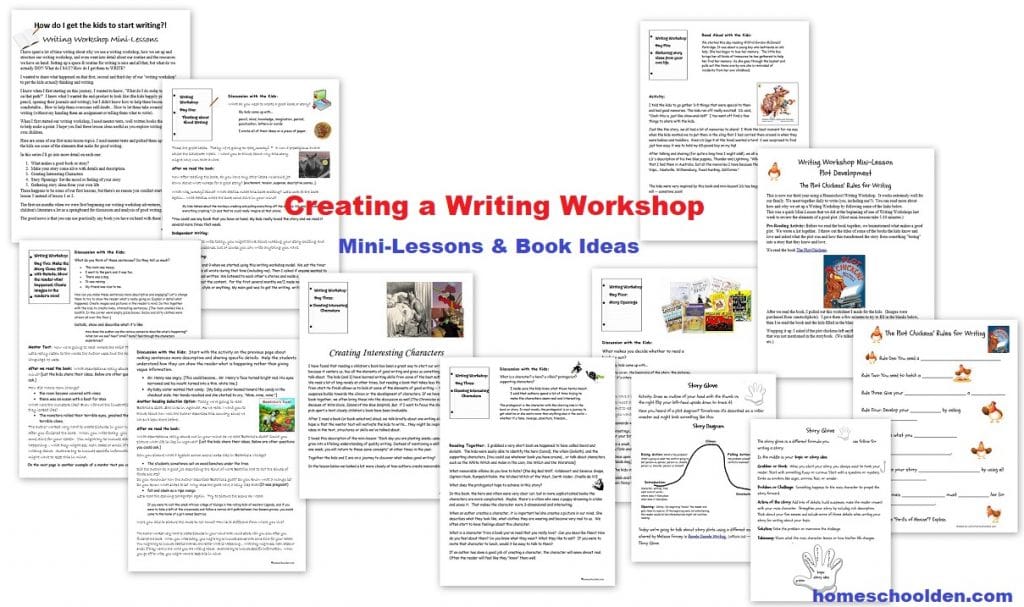
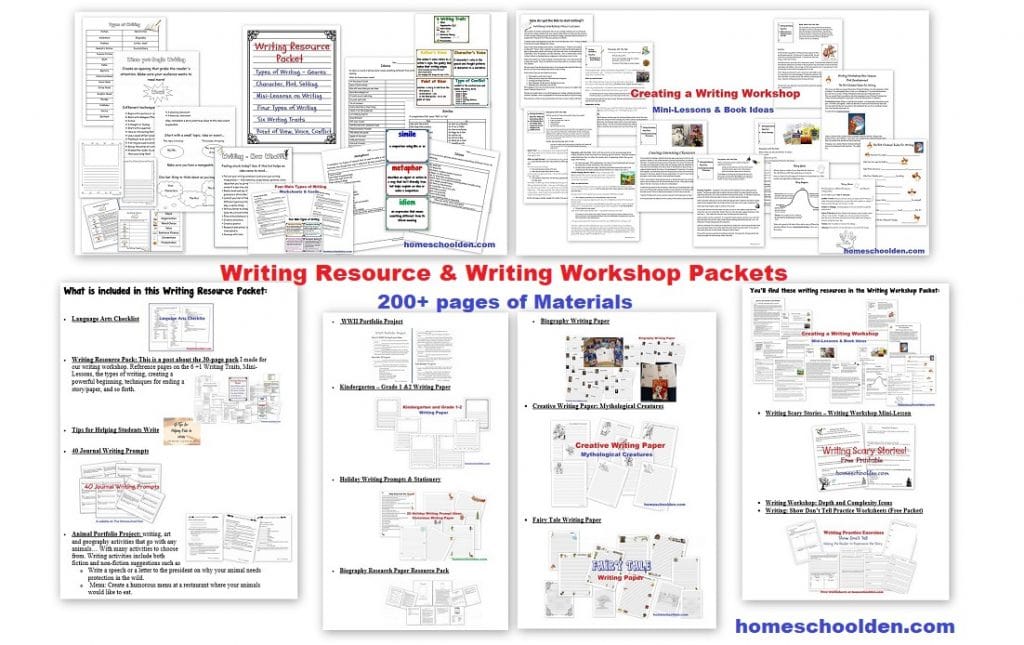
Do you want to learn more about starting your own Homeschool Writing Workshop? Here are some related posts:
- Creating a Homeschool Writing Workshop – Post #1 — How/Why we needed a change in our writing program
- Creating a Homeschool Writing Workshop – Post #2: Creating a Writing Workshop Area and Materials to Have on Hand
- Creating a Writing Workshop Post #3: This post is about Mini-Lessons during writing time, mentor texts and includes reviews of 8 or 9 writing books that you might find helpful.
- Writing Resource Pack: This is a post about the 30-page pack I made for our writing workshop. Reference pages on the 6 +1 Wri ting Traits, Mini-Lessons, the types of writing, creating a powerful beginning, techniques for ending a story/paper, and so forth. (These writing resources are free to download.)
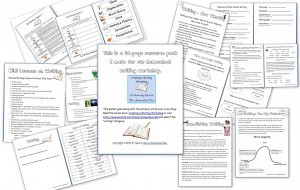
- Writing Workshop: Dr. Seuss Style: The kids and I had fun writing in the style of Dr. Seuss!
- Biography Research Paper Resource Pack
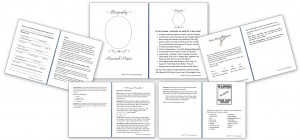
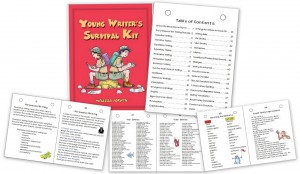
- Practical Pointers for Working with a Reluctant Writer (or any Writer)
- Writing Activity to Spark Kids’ Imagination!
- 40 Journal Writing Prompts (Free Printable)
- Animal Portfolio Project: writing, art and geography activities that go with any animals… With many activities to choose from. Writing activities include both fiction and non-fiction suggestions such as
-
- Write a speech or a letter to the president on why your animal needs protection in the wild.
- Menu: Create a humorous menu at a restaurant where your animals would like to eat.
-
- WWII Portfolio Project
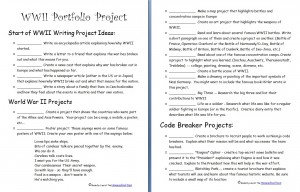
- Writing Workshop: What We’re Doing for Writing This Fall
- Writing Workshop Rules! Why the Writing Workshop continues to work so well in our homeschool.
Mini-Lessons to Use in a Writing Workshop:
- What makes a good book or story?
- Make your story come alive with details and description.
- Creating Interesting Characters
- Story Openings: Set the mood or feeling of your story
- Gathering story ideas from your own life
- Alliteration and more
- MiniLesson – Describing in Detail – Adding Details Exercise – Fun Activity!(Don’t miss this one, the kids LOVED this activity!!)
- Writing Workshop: Conflict in Literature (Man vs. Man, Man vs. Self, etc)
- Writing Workshop Mini-Lesson: Rules for Writing and the Story Writing Process — Have your kids read the Plot Chicken? We started our Writing Workshop this year off with this book. What a great buk, buk!! In fact, I liked it so much that I created a chicken writing rules printable to go along with the book!
- Writing Scary Stories – Writing Workshop Mini-Lesson
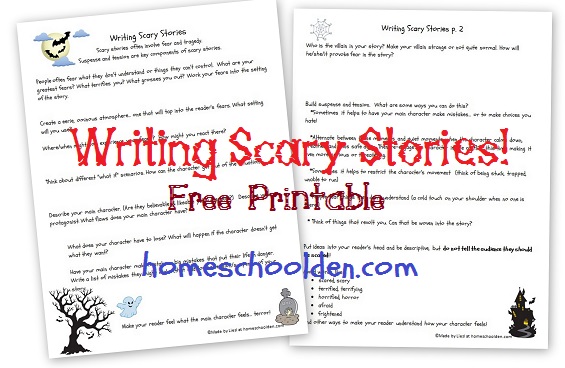
- Writing Workshop: Depth and Complexity Icons
- Writing: Show Don’t Tell Practice Worksheets (Free Packet) – Actually I included these in the resource packet above too!
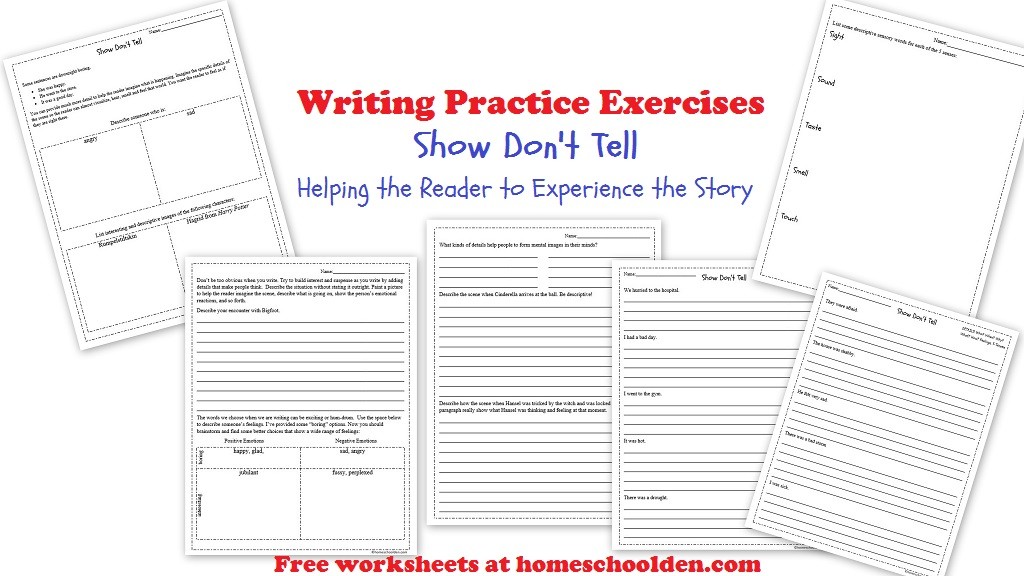 You might be interested in our FREE grammar practice worksheets at the language arts resource tab above
You might be interested in our FREE grammar practice worksheets at the language arts resource tab above
Check out some of the curriculum we use for Language Arts – Literature, Spelling, Grammar, Vocabulary here:
